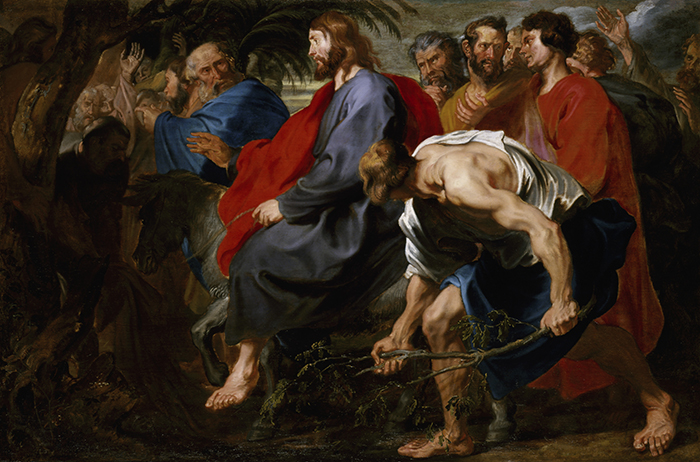
What a great blessing Holy Week is. That we celebrate it every year is a special grace.
From the creation story in Genesis to the early Church’s life in the Acts of the Apostles and the Epistles, we celebrate God’s loving involvement with God’s creatures. Probably we can look at Holy Week as a kind of review of what we believe God has done. I believe it is a review, but I think most importantly it is a week in which we try to allow God to enter our lives in the present moment. It is marvelous to look back at how God has been involved with his people in the past, but I think it is most important to realize how God is present to us now.
I never cease to be amazed by the difference between private prayer and liturgical prayer. Private prayer’s value is dependent on the personal relationship that the person praying has with God. When I recite an Our Father or a Hail Mary, the value of those prayers is dependent on my relationship with God. They are Robert Lauder’s prayers. Liturgical prayer is the Church’s prayer and is dependent on Christ’s relationship with God. When the Church prays liturgically, Christ, as the head of the Church, is praying. We can, of course, pray with him, but the value of the prayer is primarily due not to us but Christ. When I first studied the theology of the liturgy, I was in awe. I still am.
When we read sacred scripture, there is a sense in which we are reading a story about us. What Genesis tells about God’s love of his creation sheds essential light on God’s love for us. When we read the gospels informing us of his teaching, the Lord is teaching us. When we read about Jesus’ suffering, death and resurrection, we are being told the most profound and most important meaning of each one of us. The Acts and the Epistles are dramatically relating the Mystical Body of Christ’s early life of which we are members. When sacred scripture becomes part of the sacred liturgy, it has an extraordinary power to influence and sanctify us.
I usually don’t approach Holy Week with the idea of making some resolution that will help me be a better priest, but this year a resolution has developed in my mind. When the pandemic passes, I hope to be a better celebrant at the Eucharist. Though I have always prepared homilies, I want to weave the readings into the homily so that the message of the readings has a stronger influence on my homily message.
I also hope to approach the celebration with a great sense of awe and wonder. No matter how much we reflect on what we believe about the Eucharist, it seems too good to be true. At this point, even before the pandemic, many Catholics had stopped attending Sunday Eucharists with any regularity. Why? I don’t know. I have heard some Catholics criticize the singing or lack of singing at Eucharists. Others have criticized homilies or the lack of a sense of community.
I understand all the criticisms, and I think those making the criticisms are probably sincere, but none of the criticisms would lead me to stop attending Eucharists. What is different in my belief in the Eucharists and in the belief of those who, even before the pandemic, had stopped attending Sunday Eucharists regularly? I don’t know, but I very much wish to find out.
All of salvation is recalled at every Eucharist. The Son of God’s supreme sacrifice of himself is present sacramentally, and we are present to offer that sacrifice with him and join our commitments and self gifts to his offering. Talk about drama and significant moments in life! What is more astonishing than the celebration of a Eucharist? I think it is easy for us to allow the celebrations to become routine. If we have experienced that tendency, we must fight against it.
Every Eucharist provides an opportunity for us to express our faith, our hope, and our love. A celebration also offers an opportunity for our faith, hope, and love to deepen and be strengthened.
I cannot recall where I first read or heard the idea that we should live eucharistically. I think this means that we live as self-gifts. What we do sacramentally and liturgically we carry over into our daily lives. Alone, of course, we could never accomplish this. But we are not alone. The power of the Eucharist can inspire us, shape us and move us to be like Christ.
Father Lauder is a philosophy professor at St. John’s University, Jamaica. He presents two 15-minute talks from his lecture series on the Catholic Novel, 10:30 a.m. Monday through Friday on NET-TV.

Great article, Father. I felt excited about the prospect, as we slowly move towards the “new normal”, to return to Sunday Mass with the kind of exuberance and awe that you have expressed.